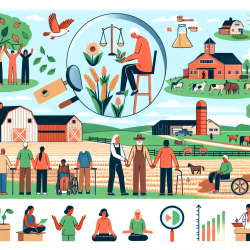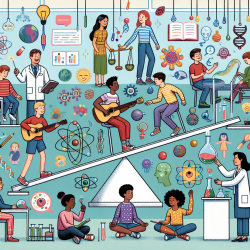The development of digital tools for story-retell elicitation and analysis represents a significant advancement in speech-language therapy, particularly for children. The research article titled "The development of a digital story-retell elicitation and analysis tool through citizen science data collection, software development and machine learning" provides valuable insights into this innovative approach. This blog post will discuss how practitioners can implement these research outcomes to enhance their clinical practice and encourage further exploration in this area.
Harnessing Digital Tools for Story-Retell Analysis
Traditional methods of language sampling and analysis, while effective, often present barriers such as time constraints and the need for specialized training. The introduction of semi-automated transcription and linguistic analysis tools aims to overcome these obstacles. According to the research, the newly developed app can reliably analyze both micro-structure (grammatical structures) and macro-structure (story grammar) elements of children's narratives.
Key Findings and Implementation
The study utilized a co-design process involving clinicians, parents, and children to develop an app that collects story retell samples. The app’s reliability was tested against manual analyses performed by trained research associates, showing high levels of agreement. Here are some key findings and how they can be implemented in clinical practice:
- Micro-Structure Analysis: The app demonstrated excellent reliability for most micro-structure metrics, such as mean length of utterance and total words. Clinicians can use this tool to quickly and accurately assess a child's grammatical development, saving valuable time.
- Macro-Structure Analysis: The app also showed good to excellent reliability for most macro-structure elements. This allows clinicians to evaluate a child's narrative skills, providing a comprehensive picture of their language abilities.
- User-Friendly Interface: The app was designed to be intuitive, ensuring that clinicians can easily review and interpret the results. This reduces the learning curve and makes the tool accessible even to those less confident in linguistic analysis.
Encouraging Further Research
While the current study shows promising results, further research is needed to validate the tool's effectiveness in diverse clinical settings. Practitioners are encouraged to participate in ongoing studies and provide feedback to refine these digital tools. Collaboration between researchers and clinicians will be crucial in advancing this field.
Conclusion
Digital story-retell tools hold great promise for improving language assessment and intervention in speech-language therapy. By incorporating these tools into clinical practice, practitioners can enhance their efficiency and accuracy in diagnosing and treating language disorders. To read the original research paper, please follow this link: The development of a digital story-retell elicitation and analysis tool through citizen science data collection, software development and machine learning.










